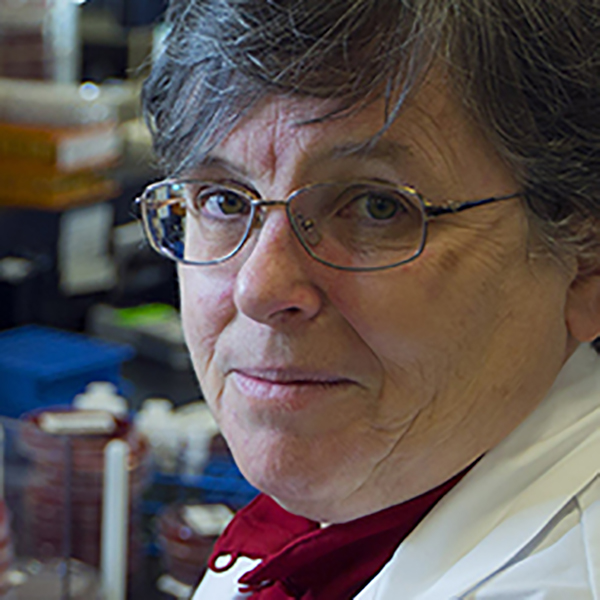Vaccine Surveillance

Canadian National Vaccine Safety (CANVAS) network
Julie Bettinger, Dalhousie University
Since 2009, the Canadian National Vaccine Safety (CANVAS) network—part of the Canadian Immunization Research Network (CIRN)—has been conducting active safety surveillance for vaccines. Using this existing framework, CANVAS is monitoring the safety of COVID-19 vaccines across Canada by determining how often health events occur after receiving a COVID-19 vaccine.
Research summary Results Study website View study on 

Characterization of COVID-19 vaccine safety epidemiology and safety signal detection for adverse events following immunization in Alberta
Alexander Doroshenko, University of Alberta
This study aims to strengthen the existing capacity of Alberta’s public health system to record and study adverse events after COVID-19 vaccination. Researchers are specifically studying adverse events among individuals such as Indigenous People and people from economically vulnerable backgrounds for whom reliable information may be difficult to obtain.
Research summary Results Study website View study on 

Monitoring immune response in the context of COVID-19 vaccination – Establishment of a longitudinal cohort of plasma donors
Marc Germain, Héma-Québec
Given Héma-Québec’s opportunity to collect repeat blood and plasma samples, we have launched a biobank of samples from plasma donors. The samples collected allow the, to gather information before and after vaccination, and in some cases before and after COVID-19 infection, to allow both their researchers and other researchers in Canada to study the immune response to COVID-19 vaccination or infection.
Research summary Results Study website View study on 

Canadian Immunization Research Network (CIRN) Provincial Collaborative Network (PCN) COVID-19 Vaccine Post-Market Studies
Jeff Kwong, University of Toronto
Using linkable databases in five provinces, this study aims to estimate COVID-19 vaccine coverage, determine if vaccinated people are more likely than unvaccinated people to experience adverse events, and evaluate the effectiveness of different vaccines and dosing schedules, the impact of previous COVID-19 infection, and how long protection lasts.
Research summary Results Study website View study on 

Immunogenicity and adverse events following immunization (AEFI) with alternate schedules of COVID-19 vaccines in Canada: is “mix and match” of the second dose (MOSAIC-1) and a heterologous third dose (MOSAIC-2) safe and immunogenic?
Joanne Langley, Dalhousie University
This study is following participants in five provinces to determine the safety and efficacy of combining different vaccines (mixing and matching), as well as determine the effects of different dosing intervals used in Canada on immunity and safety.
Research summary Results Study website View study on 

Best Practices for Distributed-Network Studies of Vaccine Safety and Efficacy
Robert Platt, Sir Mortimer B. Davis Jewish General Hospital
This project is focused on developing and implementing solutions to methodological problems that arise in studies related to vaccine safety and efficacy. The researchers’ aim is to support organizations and researchers using their existing library of methods for drug safety and effectiveness and to develop recommended practices for vaccine safety and efficacy studies in distributed networks.
Research summary Results Study website View study on 

Optimizing COVID-19 immunization in patients with adverse events following immunization andpatients with immunosuppression in the Special Immunization Clinic Network (SIC)
Karina Top, Dalhousie University
The success of mass COVID-19 vaccine campaigns depends on the ongoing evaluation of both the safety and effectiveness of the vaccines. This study aims to support public health agencies in standardizing the evaluation and management of patients with unexpected, severe and serious rare adverse events following immunization (AEFIs) to COVID-19 vaccines.
Research summary Results Study website View study on 

Are there post-vaccination antibody levels that correlate with protection against COVID19? (AB-Protect)
Allison McGeer, Sinai Health System
This study aims to understand whether there is an antibody correlate of protection associated with vaccination against COVID-19 and its variants. The project complements existing vaccine effectiveness studies and focuses on identifying people who develop COVID-19 infection despite having been vaccinated to better understand their antibody levels.
Research summary Results Study website View study on 

Canadian COVID-19 Emergency Department Rapid Response Network: Real-World Vaccine Effectiveness and Duration of Protection in Special Populations
Corinne Hohl, University of British Columbia
Using an existing network and infrastructure available in hospital emergency departments (EDs) in eight provinces, this study is creating a national vaccine evaluation platform to collect data on vaccination status and answer questions about how well COVID-19 vaccines work. They seek to evaluate vaccine effectiveness and how long this protection lasts in populations which commonly receive care in EDs.
Research summary Results Study website View study on 

Sentinel surveillance for serious adverse events following immunization (AEFI) and assessment of COVID-19 effectivenes for the prevention of serious outcomes among hospitalized Canadian adults: A study of the Serious Outcomes Surveillance (SOS) Network of the Canadian Immunization Research Network (CIRN)
Shelly McNeil, Nova Scotia Health Authority
This study sees the SOS Network conduct enhanced surveillance for COVID-19, providing a detailed description of the clinical characteristics, severity of illness, and outcomes of adults hospitalized with COVID-19. They are also providing public health officials with critical information regarding serious adverse events following immunization (AEFI).
Research summary Results Study website View study on 
Shelly McNeil
Shelly McNeil, MD
Professor of Medicine, Dalhousie University
Chief, Division of Infectious Diseases, Nova Scotia Health
Contact info
Shelly.mcneil@nshealth.ca
Key words
Infectious Diseases
Vaccine
Vaccine effectiveness
Research interests
Burden of vaccine preventable diseases in adults with a focus on impact in older adults, including frailty
Vaccine effectiveness for the prevention of serious outcomes
Publications
Foley MK, Searle SD, Toloue A, Booth R, Falkenham A, Falzarano D, Rubino S, Francis ME, McNeil M, Richardson C, LeBlanc J, Oldford S, Gerdts V, Andrew MK, McNeil SA, Clarke B, Rockwood K, Kelvin DJ, Kelvin AA. Centenarians and extremely old people living with frailty can elicit durable SARS-CoV-2 spike specific IgG antibodies with virus neutralization functions following virus infection as determined by serological study. EClinicalMedicine. 2021Jul;37:100975. doi: 10.1016/j.eclinm.2021.100975. Epub 2021 Jun 27. PMID:
34222846; PMCID: PMC8235995.
Andrew MK, MacDonald S, Godin J, McElhaney JE, LeBlanc J, Hatchette TF, Bowie W, Katz K, McGeer A, Semret M, McNeil SA. Persistent Functional Decline Following Hospitalization with Influenza or Acute Respiratory Illness. J Am Geriatr Soc. 2021 Mar;69(3):696-703. doi: 10.1111/jgs.16950. Epub 2020 Dec 8.
PMID: 33294986; PMCID: PMC7984066.
Andrew M, Searle SD, McElhaney JE, McNeil SA, Clarke B, Rockwood K, Kelvin DJ. COVID-19, frailty and long-term care: Implications for policy and practice. J Infect Dev Ctries. 2020 May 31;14(5):428-432. doi: 10.3855/jidc.13003. PMID:32525825.
Sentinel surveillance for serious adverse events following immunization (AEFI) and assessment of COVID-19 effectivenes for the prevention of serious outcomes among hospitalized Ccanadian adults: A study of the Serious Outcomes Surveillance (SOS) Network of the Canadian Immunization Research Network (CIRN)
The Serious Outcomes Surveillance (SOS) Network—part of the Canadian Immunization Research Network—was originally established for influenza (flu) surveillance. The Network provides the Public Health Agency of Canada (PHAC) with a comprehensive understanding of outcomes for adults hospitalized with influenza, the impact of different influenza strains, and a platform for the ongoing assessment of influenza vaccine effectiveness (VE) in the prevention of severe outcomes. The SOS Network is now working on COVID-19, and aims to provide detailed, real-time information about the burden of COVID-19 leading to hospitalization in Canadian adults.
Through this study, the SOS Network is conducting enhanced, lab-based surveillance for COVID-19 and is providing public health officials with a detailed description of the clinical characteristics, severity of illness, and outcomes of adults hospitalized with COVID-19. We are also providing ongoing estimates to public health officials of COVID-19 VE in preventing hospitalization and death in a variety of priority populations, as well as critical information regarding serious adverse events following immunization (AEFI) and adverse events of special interest (AESI).
The SOS Network is made up of 12 sites in five provinces (Nova Scotia, Quebec, Ontario, Alberta, and British Columbia) representing approximately 5,800 adult acute care beds.
This study will provide critical information on COVID-19 VE in the real world, and will contribute to greater understanding of the effectiveness of COVID-19 vaccines for the prevention of serious outcomes including hospitalization and death in adults, particularly in older, frail adults and those with underlying comorbidities including autoimmune diseases and people who are immunocompromised.
Results: Sentinel surveillance for serious adverse events following immunization (AEFI) and assessment of COVID-19 effectivenes for the prevention of serious outcomes among hospitalized Ccanadian adults: A study of the Serious Outcomes Surveillance (SOS) Network of the Canadian Immunization Research Network (CIRN)
Corinne Hohl
Corinne Hohl
Associate Professor, Department of Emergency Medicine, University of British Columbia
Attending Physician, Vancouver General Hospital
Contact info
corinne.hohl@ubc.ca
Key words
COVID-19 registry, registry, observational studies, effectiveness, Emergency Medicine
Research interests
To harmonize data collection about risk factors, treatments, and short and long-term outcomes (including patient-reported outcomes) in patients with suspected and confirmed COVID-19 to enable well-powered national observational studies on COVID-19.
To develop, validate and refine clinical decision instruments to assist clinicians in the use of diagnostic tests, prognosticate COVID-19 outcomes to guide level of care conversations and patient triage, and ensure safe patient discharges from Emergency departments.
To assess the real-world effectiveness and duration of protection of COVID-19 vaccines as they are being administered in Canada, including in special populations, and with mixed vaccine schedules and delayed second doses.
Publications
CCEDRRN methods paper:
DOI:10.9778/cmajo.20200290
Comparing of treatments and patient outcomes across Canada between wave 1 and wave 2:
https://www.medrxiv.org/content/10.1101/2021.07.30.21261288v1
Clinical decision rule that allows emergency clinicians to identify COVID-19 risks at triage to guide the decision to test for COVID: https://www.medrxiv.org/content/10.1101/2021.07.15.21260590v2
Development and validation of a clinical decision rule to allow emergency and ICU physicians to determine mortality risk on arrival before intubation decisions are made to guide shared decision-making around code status and patient triage:
https://www.medrxiv.org/content/10.1101/2021.07.28.21261283v1
Canadian COVID-19 Emergency Department Rapid Response Network: Real-World Vaccine Effectiveness and Duration of Protection in Special Populations
The Canadian COVID-19 Emergency Department Rapid Response Network (CCEDRRN) was established in 2020 and works to harmonize data on patients tested for COVID-19 in 50 emergency departments (ED) in eight Canadian provinces. More than 130,000 patients are enrolled in the registry. Using this existing network and infrastructure, we are creating a national vaccine evaluation platform in partnership with provincial public health partners to collect data on vaccination status and answer questions about how well COVID-19 vaccines work.
Our study, called Canadian COVID-19 Emergency Department Rapid Response Network: Real-World Vaccine Effectiveness and Duration of Protection in Special Populations, has as objectives to evaluate vaccine effectiveness and how long this protection lasts in populations which commonly receive care in EDs for symptomatic and severe COVID-19, with a focus on specific groups such as people in racialized or marginalized communities. We are collecting detailed clinical, demographic, and social data by reviewing hospital charts and conducting follow-up phone calls. The multiple data collection methods allow us to understand the quality of vaccine data, and gather information about race, ethnicity, gender, and other determinants of COVID-19 transmission and risk that are not captured in other datasets.
Our evaluations take into consideration single vs. two doses of a vaccine, booster doses, and mixing vaccines from different manufacturers. We are also looking at how long vaccine protection lasts against symptomatic COVID-19 disease in the general population compared to specific population groups.
Our research complements other vaccine surveillance projects in Canada, and the data we collect on a broad range of patients and disease severity will ensure that we answer priority questions to guide ongoing public health decision-making on vaccinations.
Canadian COVID-19 Emergency Department Rapid Response Network: Real-World Vaccine Effectiveness and Duration of Protection in Special Populations
Allison McGeer
Allison McGeer, MD
Professor, University of Toronto
Infectious Disease Consultant, Sinai Health System
Key words
Adult immunization
Epidemiology
long term care
Research interests
My research interests are in the prevention of healthcare associated infection, the use of epidemiology to decrease the burden of infectious diseases, and adult immunization.
Publications
Abe KT, Li Z, Samson R, Samavarchi-Tehrani P, Valcourt EJ, Wood H, et al. A simple protein-based surrogate neutralization assay for SARS-CoV-2. JCI insight. 2020;5(19).
Isho B, Abe KT, Zuo M, Jamal AJ, Rathod B, Wang JH, et al. Persistence of serum and saliva antibody responses to SARS-CoV-2 spike antigens in COVID-19 patients. Science immunology. 2020;5(52).
Kohler PP, Kahlert CR, Sumer J, Flury D, Güsewell S, Leal-Neto OB, et al. Prevalence of SARS-CoV-2 antibodies among Swiss hospital workers: Results of a prospective cohort study. Infection control and hospital epidemiology. 2020:1-5.
Law JC, Koh WH, Budylowski P, Lin J, Yue F, Abe KT, et al. Systematic Examination of Antigen-Specific Recall T Cell Responses to SARS-CoV-2 versus Influenza Virus Reveals a Distinct Inflammatory Profile. Journal of immunology (Baltimore, Md : 1950). 2021;206(1):37-50.
Are there post-vaccination antibody levels that correlate with protection against COVID19? (AB-Protect)
When developing new vaccines for a particular disease, the initial goal is to determine whether the vaccine protects against infection. In parallel with these studies, researchers also look to identify markers called “correlates of protection”: measurable signs that a person (or other potential host) is immune, in the sense of being protected against becoming infected and/or developing disease. For many viruses, antibodies serve as a correlate of protection, but they are not the only element to consider when determining whether a person is completely immune. Once correlates of protection are established, new vaccines or booster doses of vaccines can be authorized based on whether the vaccine increases a person’s correlates of protection enough to be protective, rather than requiring very large clinical trials to prove effectiveness against illness. Determining these correlates of protection is thus essential to the ongoing development of new vaccines and to decisions about the need for booster doses of vaccines. Our study aims to understand whether there is an antibody correlate of protection associated with vaccination against COVID-19 and its variants.
Our research project, called Are there post-vaccination antibody levels that correlate with protection against COVID-19? (AB-Protect), complements existing vaccine effectiveness studies and focuses on identifying people who develop COVID-19 infection despite having received a vaccination. We are collecting data and venous blood (a traditional blood draw with a needle) or dried blood spot samples from both hospitalized and community-based patients who have COVID-19 infection to determine their antibody levels. We are comparing these patients to other vaccinated people, including their household members, who have been exposed to COVID-19 but have not developed illness. We are comparing post-vaccination antibody titres at 2 to 4 weeks after the final dose, and 6 months later when possible.
Our data review is done monthly to identify any results that should be shared with public health agencies and organizations. We are also seeking out other studies on correlates of protection in Canada and elsewhere to investigate whether combining results can produce meaningful data earlier.
Results: Are there post-vaccination antibody levels that correlate with protection against COVID19? (AB-Protect)
Julie Bettinger
Julie Bettinger, PhD, MPH
Professor, Vaccine Evaluation Center, Department of Pediatrics, University of British Columbia
Principal Investigator, CIRN Canadian National Vaccine Safety (CANVAS) network
Data Center Director, Canadian Immunization Monitoring Program, Active (IMPACT)
Key words
vaccine safety, immunization uptake
Research interests
vaccine safety and vaccine preventable diseases
attitudes and beliefs around immunization uptake and use
Canadian National Vaccine Safety (CANVAS) network
COVID-19 vaccines have been tested in clinical trials to prove they are safe for humans but the shift to widespread use of the vaccines in the general population makes it essential to gather data on any adverse events or reactions people may experience. Since 2009, the Canadian National Vaccine Safety (CANVAS) network—part of the Canadian Immunization Research Network (CIRN)—has been conducting active safety surveillance for seasonal influenza vaccines and other vaccines to provide data to public health authorities. Using this existing framework, CANVAS is monitoring the safety of COVID-19 vaccines across Canada by determining how often health events occur after receiving a COVID-19 vaccine.
This study is following approximately 1,000,000 people who have been vaccinated with COVID-19 vaccines. Participants come from British Columbia, Yukon, Alberta, Ontario, Quebec, Nova Scotia and Prince Edward Island. Included in this study is a cohort of pediatric participants 5-19 years of age. They complete short web-based surveys eight days after each COVID-19 vaccination dose, and six months following their last dose. Researchers ask them about any health events they experience in the week after vaccination, as well as between doses, in order to identify any new health problem or exacerbation of an existing condition that prevents daily activities or causes them to miss work or school, or seek medical help. The study includes a control group of 50,000 unvaccinated people to compare reported adverse events from an unvaccinated group.
This research will provide important information on vaccine safety and contribute to ongoing public health vaccine program planning.
Results: Canadian National Vaccine Safety (CANVAS) network
Alexander Doroshenko
Alexander Doroshenko
Associate Professor, Faculty of Medicine and Dentistry and Adjunct Professor, School of Public Health, University of Alberta
Medical Officer of Health, Alberta Health Services
Contact info
adorohse@ualberta.ca
Key words
Communicable disease control
Immunization
Vaccine-preventable diseases
Public health programs and policies
Surveillance
Evaluation
Outbreak response
Mathematical modeling
Research interests
Epidemiology of communicable diseases and trajectories of outbreaks
Evaluation of interventions and response measures to control communicable diseases
Vaccine-preventable diseases and vaccine safety
Public health surveillance systems
Publications
Doroshenko A. The Combined Effect of Vaccination and Nonpharmaceutical Public Health Interventions-Ending the COVID-19 Pandemic. JAMA Netw Open. 2021 Jun 1;4(6):e2111675.
Characterization of COVID-19 vaccine safety epidemiology and safety signal detection for adverse events following immunization in Alberta
The approved COVID-19 vaccines have all been shown to be safe in clinical trials. With the unprecedented number of people receiving these newly approved vaccines, it is essential to gather data on any side effects associated with the vaccines to help guide public policy. In Alberta, health professionals must report any adverse events to public health after administering vaccines. These data are then analyzed to determine how often certain side effects happen over time, and if some groups experience more frequent or severe events.
The study, called Characterization of COVID-19 vaccine safety epidemiology and safety signal detection for adverse events following immunization in Alberta, aims to strengthen the existing capacity of the province’s public health system to record and study adverse events after vaccination. Researchers are partnering with public health to ensure timely and complete reporting, and if additional information is required, we conduct follow-up interviews or review health records. They are also using statistical and epidemiological methods to look for signals, that is, if certain health events occur at a more frequent rate.
The study is specifically studying adverse events among individuals such as Indigenous persons and people from economically vulnerable backgrounds for whom reliable information may be difficult to obtain. Researchers are also looking at events which may not have occurred in COVID-19 clinical trials but which could potentially be associated with COVID-19 vaccines.
Demonstrating the safety of COVID-19 vaccines is very important to build public trust and confidence in immunization programs; the research group will communicate study results to all public health stakeholders and the public in a transparent and culturally appropriate manner.
Dr. Marc Germain
Dr. Marc Germain
Vice President, Medical Affairs and Innovation, Héma-Québec
Keywords
Transfusion, epidemiology, infectious diseases
Research areas
Transfusion epidemiology, blood-borne diseases
Publications
Approx 60
Monitoring immune response in the context of COVID-19 vaccination - Establishment of a longitudinal cohort of plasma donors
Since the start of the pandemic, researchers around the globe have been actively addressing important questions about COVID-19 infection to support public health decision-makers. During the first wave of the pandemic in 2020, Héma-Québec launched a study to determine the prevalence of antibodies in a sample number of blood donors. With the approval and distribution of COVID-19 vaccines, Héma-Québec has launched another project to set up a biobank of samples from plasma donors (plasma is the liquid portion of the blood, once all the cells have been removed. It contains water, salts, enzymes, antibodies and other proteins) to study immune response to vaccination or infection.
Over a period of several months, all plasma donors presenting to one of our 10 permanent sites were asked to take part in this study called Monitoring immune response in the context of COVID-19 vaccination – Establishment of a longitudinal cohort of plasma donors (Suivi de la réponse immunitaire dans le contexte de la vaccination contre la COVID-19 – Mise en place d’une cohorte longitudinale de donneurs de plasma). For donors who agree to participate, researchers collect a 3 ml sample of plasma at the end of their session which is then banked for research purposes. Data on vaccination and infection events are also collected. We launched a pilot phase in March 2021 before the COVID-19 vaccination programs for the public were fully underway to ensure that a portion of samples were pre-vaccination. The program was then introduced to all Héma-Québec centres in April 2021.
Many of the donors give plasma on a regular basis; this provides an opportunity to collect repeat samples and study the response to vaccination or infection over time. The samples collected allow researchers to gather information before and after vaccination, and in some cases before and after COVID-19 infection, which will contribute to better understanding the impact of vaccination on the evolution of the pandemic. Researchers anticipate that over the course of the project, which will continue well into 2022, they may generate more than 100,000 plasma samples for Héma-Québec researchers and partners to study.
Jeff Kwong
Jeff Kwong
Professor, Department of Family and Community Medicine and Dalla Lana School of Public Health, University of Toronto
Family Physician, Toronto Western Family Health Team
Senior Scientist, ICES
Scientist, Public Health Ontario
Contact info
Jeff.kwong@utoronto.ca
Key words
COVID-19, epidemiology, vaccines, influenza, data linkage, public health, family medicine
Research interests
Infectious diseases epidemiologic research using large linkable databases
Influenza (and now COVID-19) vaccine and vaccination program evaluation
Assessing the health and economic burden of infectious diseases
Publications
https://www.medrxiv.org/content/10.1101/2021.05.24.21257744v1
Canadian Immunization Research Network (CIRN) Provincial Collaborative Network (PCN) COVID-19 Vaccine Post-Market Studies
While clinical trials of the COVID-19 vaccines demonstrated the vaccines’ safety and effectiveness, people enrolled in the trials numbered in the tens of thousands and were only followed for a period of several months. Like any vaccine, it is essential to continue monitoring the safety and effectiveness of COVID-19 vaccines as millions of people receive the vaccines through immunization programs. It is also important to monitor uptake of the vaccines—how many people are being vaccinated and when—to inform ongoing planning and evaluation of vaccine programs.
The Canadian Immunization Research Network (CIRN) Provincial Collaborative Network (PCN) is conducting studies to rapidly and rigorously evaluate COVID-19 vaccine coverage, safety, and effectiveness overall, and in various population subgroups, across multiple provinces in Canada.
The study, which is a group of studies called Canadian Immunization Research Network (CIRN) Provincial Collaborative Network (PCN) COVID-19 Vaccine Post-Market studies, involves linkable databases (vaccine, laboratory and health administrative data) from British Columbia, Alberta, Manitoba, Ontario and Quebec, representing 90 per cent of Canada’s population. The study objectives include estimating COVID-19 vaccine coverage (which brand of vaccine and number of doses) at multiple times, looking at individual provinces, overall population, and population subgroups. Researchers are determining if vaccinated people are more likely than unvaccinated people to experience adverse events associated with the vaccines, and are evaluating the effectiveness of COVID-19 vaccines in preventing infections and serious outcomes such as hospitalization and death. The studies are also looking at the effectiveness of different vaccines and dosing schedules, the impact of previous COVID-19 infection, and how long protection lasts.
The results will help governments and public health officials plan ongoing COVID-19 vaccination programs and provide the public with more detailed information on the vaccines’ safety and efficacy.
Results: Canadian Immunization Research Network (CIRN) Provincial Collaborative Network (PCN) COVID-19 Vaccine Post-Market Studies
Joanne Langley
Joanne Langley
Professor of Pediatrics and Community Health and Epidemiology, Dalhousie University
CIHR-GSK Chair in Pediatric Vaccinology, Dalhousie University
Pediatric Infectious Disease Physician, IWK Health Centre
Associate Director Clinical Evaluation Unit, Canadian Center for Vaccinology/Dalhousie University/NSHA/IWK Health Centre
Lead for Clinical Trials Network of the Canadian Immunization Research Network
Head of Pediatric Infectious Diseases, IWK Health Centre
Contact info
Joanne.langley@dal.ca
Key words
Epidemiology
Respiratory infections / RSV
Immunization
Vaccine
Research interests
Epidemiology and vaccine prevention of respiratory infections
Immunization decision-making
Publications
Zhang K, Misra A, Kim PJ, Moghadas SM, Langley JM, Smieja M. Rapid disappearance of influenza following the implementation of COVID-19 mitigation measures in Hamilton, Ontario. Can Commun Dis Rep. 2021;47(4):202-209. PubMed PMID: 34035666. DOI: 10.14745/ccdr.v47i04a04.
Moghadas SM, Vilches TN, Zhang K, Wells CR, Shoukat A, Singer BH, Meyers LA, Neuzil KM, Langley JM, Fitzpatrick MC, Galvani AP. The impact of vaccination on COVID-19 outbreaks in the United States. Clin Infect Dis. 2021 Jan 30;ciab079. DOI: 10.1093/cid/ciab079. [Epub ahead of print]. PubMed ID: 33515252
Vilches TN, Nourbakhsh S, Zhang K, Juden-Kelly L, Cipriano LE, Langley JM, Sah P, Galvani AP, Moghadas SM. Multifaceted strategies for the control of COVID-19 outbreaks in long-term care facilities in Ontario, Canada. Prev Med. 2021 Apr 18;148;106564. ePub ahead of print. PubMed PMID: 33878351. DOI: 10.1016/j.ypmed.2021.106564.
Zhang K, Shoukat A, Crystal W, Langley JM, Galvani AP, Moghadas SM. Routine saliva testing for the identification of silent COVID-19 infections in healthcare workers. Infect Control Hosp Epidemiol. 2021 Jan 11;1–17. doi: 10.1017/ice.2020.1413. [Epub ahead of print]. PubMed ID: 33427141.
Vilches TN, Zhang K, Van Exan R, Langley JM, Moghadas SM. Projecting the impact of a two-dose COVID-19 vaccination campaign in Ontario, Canada. Vaccine. 2021;39(17):2360-2365. PubMed PMID: 33812742
Immunogenicity and adverse events following immunization (AEFI) with alternate schedules of COVID-19 vaccines in Canada: is “mix and match” of the second dose (MOSAIC-1) and a heterologous third dose (MOSAIC-2) safe and immunogenic?
The COVID-19 vaccines in Canada’s vaccination programs for adults are given as two doses followed by a third (booster) dose. Early in the vaccine rollout in 2021 unexpected manufacturing delays resulted in shipment of vaccines over months. As a result, public health authorities recommended extending the time period between the first two doses by up to four months in order to vaccinate as many people as possible with a first dose. In addition, a ‘mix-and-match’ approach was taken in many jurisdictions in which people received a different COVID-19 vaccine for their second and third dose. The goal of this study, called Immunogenicity and adverse events following immunization (AEFI) with alternate schedules of authorized COVID-19 vaccines in Canada: is “mix and match” of the second dose (MOSAIC 1; CT24) and a heterologous third dose (MOSAIC-2;CT24) safe and immunogenic?, is to determine the safety and the immune responses when different vaccine dosing intervals are used.
Researchers are following study participants through the Canadian Immunization Research Network (CIRN) clinical trial sites in five provinces (Nova Scotia, Quebec, Ontario, Manitoba, and British Columbia). In MOSAIC 1, they are looking at different vaccine combinations for two different dosing schedules: some participants receive their second dose at 28 days while others receive it at 112 days. In MOSAIC 2, researchers will compare the immunogenicity, reactogenicity, and acceptability of homologous and heterologous third (booster) doses at varying intervals after completion of their primary series. They are measuring participants’ immune responses through periodic blood tests. Participants are also being followed for any reactions after vaccination that may affect their health and well-being.
As other vaccines become available for use in Canada, they will be added to the study. The research results will contribute to providing Canadian data on using vaccines in the most effective way possible and will help inform public health recommendations and decision-making for the ongoing vaccine rollout in Canada.
Results: Immunogenicity and adverse events following immunization (AEFI) with alternate schedules of COVID-19 vaccines in Canada: is “mix and match” of the second dose (MOSAIC-1) and a heterologous third dose (MOSAIC-2) safe and immunogenic?
The COVID-19 vaccines in Canada’s vaccination programs for adults are given as two doses followed by a third (booster) dose. Early in the vaccine rollout in 2021 unexpected manufacturing delays resulted in shipment of vaccines over months. As a result, public health authorities recommended extending the time period between the first two doses by up to four months in order to vaccinate as many people as possible with a first dose. In addition, a ‘mix-and-match’ approach was taken in many jurisdictions in which people received a different COVID-19 vaccine for their second and third dose. The goal of this study, called Immunogenicity and adverse events following immunization (AEFI) with alternate schedules of authorized COVID-19 vaccines in Canada: is “mix and match” of the second dose (MOSAIC 1; CT24) and a heterologous third dose (MOSAIC-2;CT24) safe and immunogenic?, is to determine the safety and the immune responses when different vaccine dosing intervals are used.
Researchers are following study participants through the Canadian Immunization Research Network (CIRN) clinical trial sites in five provinces (Nova Scotia, Quebec, Ontario, Manitoba, and British Columbia). In MOSAIC 1, they are looking at different vaccine combinations for two different dosing schedules: some participants receive their second dose at 28 days while others receive it at 112 days. In MOSAIC 2, researchers will compare the immunogenicity, reactogenicity, and acceptability of homologous and heterologous third (booster) doses at varying intervals after completion of their primary series. They are measuring participants’ immune responses through periodic blood tests. Participants are also being followed for any reactions after vaccination that may affect their health and well-being.
As other vaccines become available for use in Canada, they will be added to the study. The research results will contribute to providing Canadian data on using vaccines in the most effective way possible and will help inform public health recommendations and decision-making for the ongoing vaccine rollout in Canada.
Robert Platt
Robert Platt
Professor, McGill University, and Investigator, Lady Davis Institute
Contact info
Robert.platt@mcgill.ca
Key words
Biostatistics
Big data
Distributed research networks
Research interests
Statistical methods for analysis of administrative data and electronic health records
Causal inference
Pharmacoepidemiology
Pregnancy and perinatal epidemiology
Best Practices for Distributed-Network Studies of Vaccine Safety and Efficacy
The Canadian Network for Observational Drug Effect Studies (CNODES) is a coordinating centre and research network for observational studies funded by Canada’s Drug Safety and Effectiveness Network. The primary mission of CNODES is to use Canadian and international databases through a distributed network (a computer network spread over different networks) to provide rapid responses to queries on issues of drug safety and effectiveness.
This project, called Best Practices for Distributed-Network Studies of Vaccine Safety and Efficacy, is focused on developing and implementing solutions to methodological problems that arise in studies related to vaccine safety and efficacy. To support organizations and researchers, and using the researchers’ existing library of methods for drug safety and effectiveness, CNODES is developing recommended practices for vaccine safety and efficacy studies in distributed networks. This includes review of the current literature on the subject, development of new methods and data analytic packages as needed, and sharing new knowledge with relevant users.
The researchers’ initial focus is on three areas: harmonization across distributed networks (data standardization and programs), privacy analysis, and recommended practices in meta-analysis (statistical analysis combining the results of multiple studies). They are in a position to support different groups conducting studies of this nature, and provide methodological consultation to them on an as-needed basis.
Karina Top
Karina Top
Associate Professor, Dalhousie University
Pediatric Infectious Disease Consultant, IWK Health
Contact info
Karina.top@dal.ca
Key words
Vaccines
Adverse events following immunization
Epidemiology
Infectious diseases
Pediatrics
Research interests
Vaccine safety surveillance
Clinical management of patients who have experienced adverse events following immunization
Vaccine safety and effectiveness in immune-compromised patients
Vaccine safety in pregnancy
Optimizing COVID-19 immunization in patients with adverse events following immunization andpatients with immunosuppression in the Special Immunization Clinic Network (SIC)
The success of mass COVID-19 vaccine campaigns depends on the ongoing evaluation of both the safety profile and effectiveness of the vaccines. Part of the work in assessing vaccine safety involves investigating rare adverse events following immunization (AEFIs).
The Canadian Immunization Research Network’s Special Immunization Clinic (SIC) Network was established in 2013 and currently has 17 sites covering 10 provinces. The SIC Network is a critical component of Canada’s vaccine safety system, and it has developed standardized protocols for assessment, management and follow-up of patients with AEFIs.
This study, called Optimizing COVID-19 immunization in patients with adverse events following immunization and patients with immunosuppression in the Special Immunization Clinical Network, aims to support public health agencies in standardizing the evaluation and management of patients with unexpected, severe and serious AEFIs to COVID-19 vaccines. The study will determine the safety of administering subsequent doses and risk of AEFI recurrence, as well as determining risk factors for COVID-19 vaccine allergy.
Patients who experience an adverse event following COVID-19 vaccination can be referred to the SIC Network by a healthcare provider for further assessment, which may include a detailed medical history, additional investigations such as allergy skin testing, and treatment such as supervised re-vaccination for those with severe allergic reactions. The SIC Network may also coordinate referrals to other specialists to help confirm the diagnosis.
Researchers are sharing their results with public health authorities and healthcare providers to help them address possible safety concerns and inform COVID-19 vaccine recommendations for people who have had an adverse event.


